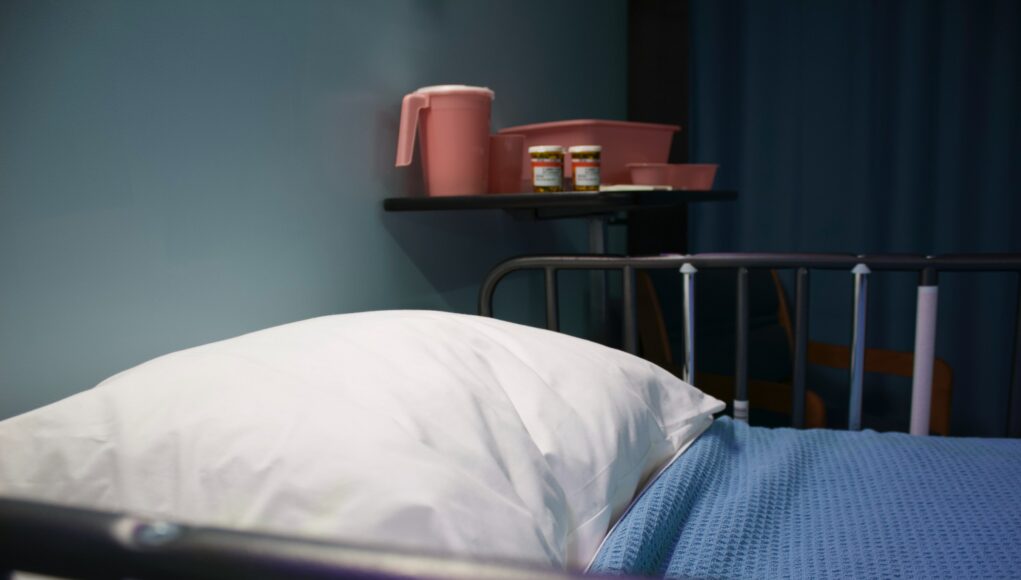As healthcare workers, especially within the niche field of treating dysphagia, we bear witness to the extreme highs and, all too often, the extreme lows of the human condition. We are present during life’s greatest challenges, one that interrupts a basic yet complicated human condition, such as eating and drinking. We are an essential part of the greater responsibility of preserving and restoring health. What we do is a calling that demands unwavering compassion, resilience, and most of all, a commitment to lifelong learning.
I want to impart upon you a few lessons that I have learned through my own experiences, in the hope that they will guide you as you embark on your professional journeys.
First and foremost, remember the power of empathy. I refer to this as “being on the other side of the bed.” Perhaps, you or someone close to you found themselves in the hospital bed as a patient, experiencing healthcare from a vulnerable perspective. As healthcare workers, we have the privilege of touching lives in profound ways. Perhaps that experience as a patient will always be in the back of your mind as you meet every new patient and treat them as the person they are, well beyond the illness or diagnosis. Because behind every illness, every diagnosis, and every treatment plan, there is a person—a person who may be scared, and seeking comfort. Never underestimate the power of a compassionate touch, a listening ear, or a reassuring smile. Perhaps, in our own reflections, when we were once a patient, we can remember how all we wanted was for someone to listen. Each patient you encounter has a unique story, and it is our duty to honor and understand that story. It’s okay to stay outside the larynx and the pharynx for a bit to understand the whole patient in front of you.
Secondly, embrace collaboration. The treatment of dysphagia should not be done on an island, alone, rather it is a team sport, and the best outcomes are achieved when we all work together. Remember to value the expertise and contributions of Nurses, Physicians, Medical Assistants, Nutritionists, Social Workers, Physical Therapists, Occupational Therapists or anyone, regardless of their titles or specialties. By fostering a culture of collaboration and open communication, we can create an environment where innovation thrives and patient care excels.
Thirdly, never stop learning. Remember, speech language pathologists as the expert in dysphagia is still relatively new. We are an ever-evolving field, and to be effective we must be committed to lifelong learning. Seek opportunities for professional development, stay abreast of the latest research and technological advancements, and challenge yourself to think critically and creatively. Embrace the notion that knowledge is a journey, not a destination. Be critical of information you read. I remember my mentor during my CF challenged me to find a topic of interest and read a peer-reviewed journal about that topic at least once a week. It was an important charge that would set me up for the habitual desire to learn and provide good education to others. Let blogs and websites, even this one, be a gateway or a launching pad to dive deeper into the research. Don’t settle for “tradition” and here-say. This can be damaging to your learning habits and ultimately damaging to patient care.
Lastly, as you go forth into the field, hold fast to the ideals that inspired you to enter the world of dysphagia management. Remember the passion that burns within you, the desire to make a difference, and the belief in the inherent worth of every human life. There are many things that make us human; eating and drinking just so happens to be deeply rooted in sustaining life, individual cultural differences and creating long-lasting memories. Let these values be your guiding light, especially in moments of doubt or discouragement. Put yourself in your patients’ shoes.
As you leave your colleges and universities, remember that you are not alone. You are part of a global community of dysphagia clinicians and researchers. Find those that are willing to support, encourage and uplift you. Seek mentorship, and be a mentor to others. Positive collaboration can accomplish extraordinary things.
In conclusion, graduates, as you stand on the cusp of a new chapter in your lives, know that you are entering a noble profession—but one that demands dedication, empathy, and a relentless pursuit of excellence. Remember the impact you can have on the lives of others, and the privilege it is to serve, not just as any healthcare worker, but a clinician that specializes in restoring essential needs and wants of the human condition; the condition to eat and drink.
Congratulations, class of 2023! May your journey be filled with purpose, fulfillment, and the profound joy of making a difference. The world awaits your contributions and needs you to be at your best! I can’t wait to hear about the lives you changed.
-Jonathan





